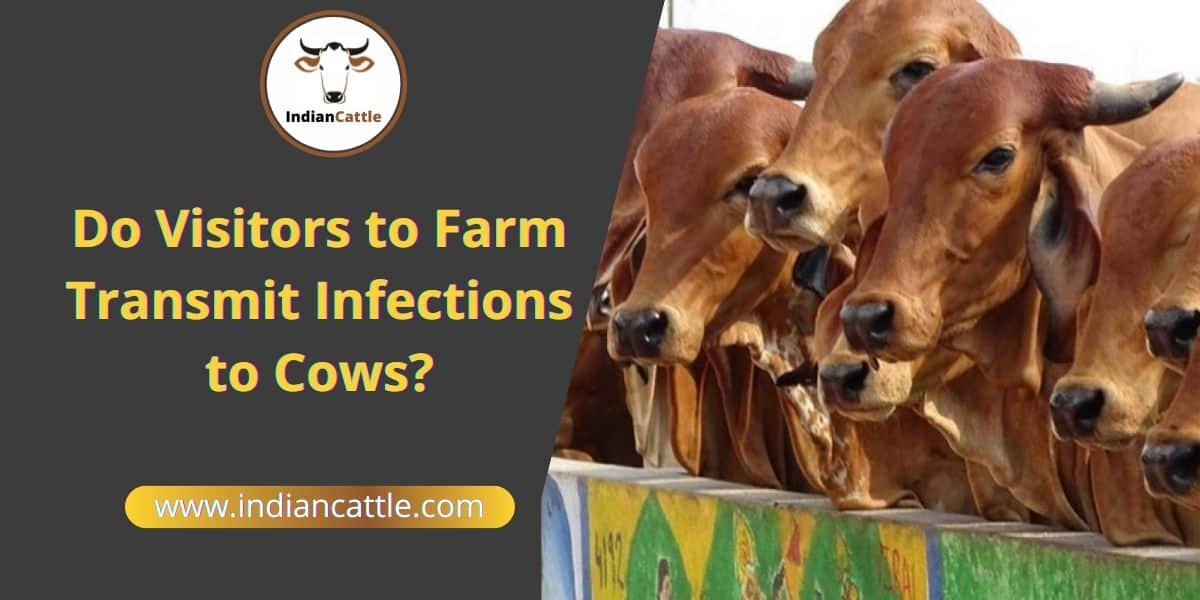
Without Biosecurity it is not possible to prevent diseases in Dairy Farms
Dairy Farm Biosecurity
It is very important to prevent disease outbreaks on dairy farms as these can cause substantial losses to any farm in terms of farm profitability as well as long-term effects on the health of an animal. There are many kinds of bacterial, viral and fungal diseases that can be spread in a farm through contaminated environments, water, feed as well as through infected visitors, stray animals or birds. Some of the major and economically important diseases which can cause huge economic losses to the farmers are Foot and Mouth Disease, Bovine Viral Diarrhoea, Brucellosis, Mastitis, etc. Some of these diseases are also zoonotic in nature which can be transmitted to humans causing adverse health effects in them e.g. tuberculosis, brucellosis, etc. As it is said that prevention is better than cure, preventing an occurrence of a disease in any farm through precautionary measures is of utmost importance. These measures are called dairy farm biosecurity measures.
These are nothing but a set of good managemental practices carried out on any farm to keep the farm animals disease-free. The developed countries have already recognized the importance of biosecurity measures and have achieved an increase in the productivity of animals through implementing dairy farm biosecurity measures which help in preventing and reducing the risk of introducing and spreading diseases on farms. It has been proved by studies that implementing biosecurity measures regularly on-farm can help in reducing the cost of treatment by 5 %. Here is the list of biosecurity practices that need to be implemented on your farm. These Dairy Farm Biosecurity measures/practices are very simple, easy to carry out and don’t need any expensive ways, equipment or methods.
Biosecurity Practices
- A major possible way by which a disease can be spread on a farm is the entry of new animals in a herd which is already infected. This can be restricted through proper quarantine of newly purchased animals. As soon as these animals are introduced on your farm, isolating them for 3 weeks (21 days) is an efficient way of minimizing the entry of disease on the farm. The reason behind this is that if at the time of purchase symptoms of the disease are not noticed or if that animal is not showing any symptom due to sub-clinical or incubation stage of disease, during this quarantine/isolation period, we can notice the symptoms and thus we can remove the respective animal from the farm before actually mixing these animals with our own herd.
- While purchasing new animals, pre-purchase testing can help us to identify readily transmissible diseases in carrier animals. Vaccinating these animals is also important.
- Regular testing of all animals for diseases like brucellosis, FMD, Mastitis, IBR is important to take timely precautions to reduce treatment costs and time spent on treatment. Timely vaccinations of these animals according to veterinary advice will be useful for restricting the disease occurrence on a farm.
- Good managemental practices on-farm for people also should be implemented strictly on the farm. Stringent rules for visitors and their vehicles need to be imposed on the farm. The use of a medicated foot and tire bath will be helpful.
- Pests such as rodents and flies can carry infectious agents, and help in spreading the disease on farms. They can also contaminate the feed/water. Pest Control programs should be followed regularly.
- Proper housing is an effective strategy to reduce disease incidence on any farm. The animals should be grouped age-wise and there should be separate facilities for the isolation of diseased animals from healthy animals to reduce further spread of the disease.
- Cleanliness, sanitation and disinfection programs should be in place. A good manure management system should be followed to reduce the spread of pathogens from animal to animal.
- Records of vaccination, treatment, etc. should be maintained effectively.
- Effective disposal of dead animals and other wastes is important to reduce the spread of pathogens.
- Ensure the feed and water to be fed to the animals is of good quality and free from micro-organisms and toxins.
Dr. Parag Ghogale
